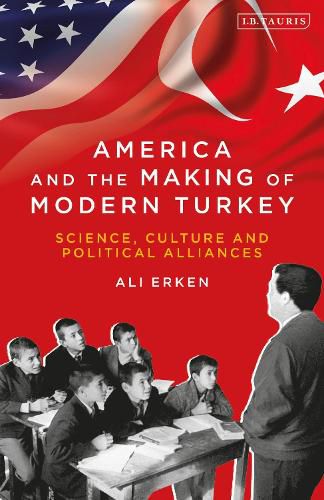Readings Newsletter
Become a Readings Member to make your shopping experience even easier.
Sign in or sign up for free!
You’re not far away from qualifying for FREE standard shipping within Australia
You’ve qualified for FREE standard shipping within Australia
The cart is loading…






After the fall of the Ottoman Empire, Mustafa Kemal Ataturk’s government encouraged substantial American investment in education and aid. It was argued that Turkey needed the technical skills and wealth offered by American education, and so a series of American schools was set up across the country to educate the Turkish youth. Here, Ali Erken, in the first study of its kind, argues that these organizations had a huge impact on political and economic thought in Turkey - acting as a form of “soft power’ for US national interests throughout the 20th Century. Robert College, originally a missionary school founded by US benefactors, has been responsible for educating two Turkish Prime Ministers, writers such as Orhan Pamuk and a huge number of influential economists, politicians and journalists. The end result of these American philanthropic efforts, Erken argues, was a consensus in the 1970s that the country must "westernize’. This mindset, and the opposition viewpoint it engendered, has come to define political struggle in modern Turkey - torn between a capitalist "modern’ West and an Islamic "Ottoman’ East. The book also reveals how and why the Rockefeller and Ford foundations funneled large amounts of money into Turkey post-1945, and undertook activities in support of "Western’ candidates in Turkey as a bulwark against the Soviet Union. This is an essential contribution to the history of US-Turkish relations, and the influence of the West in Turkish political thought.
$9.00 standard shipping within Australia
FREE standard shipping within Australia for orders over $100.00
Express & International shipping calculated at checkout
After the fall of the Ottoman Empire, Mustafa Kemal Ataturk’s government encouraged substantial American investment in education and aid. It was argued that Turkey needed the technical skills and wealth offered by American education, and so a series of American schools was set up across the country to educate the Turkish youth. Here, Ali Erken, in the first study of its kind, argues that these organizations had a huge impact on political and economic thought in Turkey - acting as a form of “soft power’ for US national interests throughout the 20th Century. Robert College, originally a missionary school founded by US benefactors, has been responsible for educating two Turkish Prime Ministers, writers such as Orhan Pamuk and a huge number of influential economists, politicians and journalists. The end result of these American philanthropic efforts, Erken argues, was a consensus in the 1970s that the country must "westernize’. This mindset, and the opposition viewpoint it engendered, has come to define political struggle in modern Turkey - torn between a capitalist "modern’ West and an Islamic "Ottoman’ East. The book also reveals how and why the Rockefeller and Ford foundations funneled large amounts of money into Turkey post-1945, and undertook activities in support of "Western’ candidates in Turkey as a bulwark against the Soviet Union. This is an essential contribution to the history of US-Turkish relations, and the influence of the West in Turkish political thought.